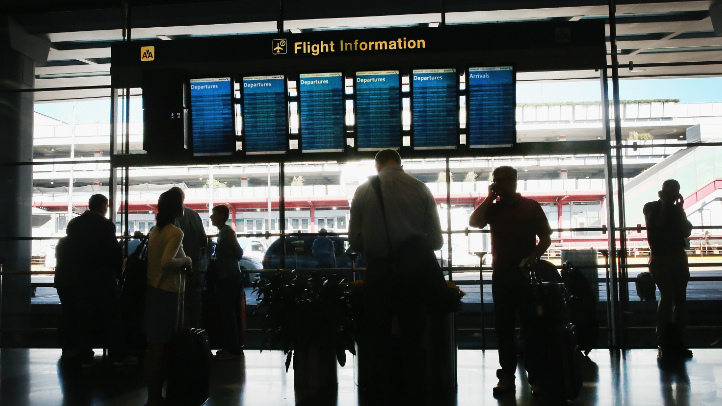What should you do if your at-home COVID test results come back positive?
According to Chicago-area health departments, people should assume the test results are accurate and should isolate from others to reduce the risk of spreading the virus.
"If you test positive for COVID-19, you must isolate," Chicago Department of Public Health Commissioner Dr. Allison Arwady said. "There is no need to repeat a positive at-home test in a medical setting. We don't want people going into the emergency department just to get a tested. Treat a positive as a positive, stay home and isolate for five days."
The Will County Health Department noted that all positive at-home test results should also be reported to primary care physicians for further guidance, as positive tests are not reported to public health agencies.
Feeling out of the loop? We'll catch you up on the Chicago news you need to know. Sign up for the weekly Chicago Catch-Up newsletter here.
"They can report their test using the portal included in the test packaging. If none are included, they can call the local health department to report their test, but the most important thing to do is isolate. Generally, home antigen tests are not reported or included in the official tallies, so the current case counts are significantly underreported," said Dr. Emily Landon, who is widely regarded as one of Chicago’s top coronavirus experts.
After isolating for at least five days and showing no symptoms, as recommended by the Centers for Disease Control and Prevention this week, the Cook County Health Department said patients should get another COVID test.
Chicago's top doctor said Wednesday that people experiencing cold-like symptoms should assume they have the coronavirus and isolate to prevent infecting others.
Local
"If you think it's a cold, if you think it's the flu, it's probably COVID," Chicago Department of Public Health Commissioner Dr. Allison Arwady said in a press conference. "We need you to stay home if you're not feeling well."
As more people gear up for New Year's Eve celebrations this weekend, Arwady asked that anyone who believes they could have COVID waiting for test results stay home for the holiday.
The type of symptoms associated with the new omicron variant depend on vaccination status, according to Arwady.
The omicron variant isn't necessarily bringing with it a new set of symptoms, she said, but with vaccines now widely available, many are experiencing milder cases, if vaccinated.
"The symptoms that we're seeing are not different with omicron than they were with delta, than they were with the original. It's just that we are seeing more what we call breakthrough infections," Arwady said. "So the vaccines continue to protect, but not as well against infection, although they continue to protect beautifully against severe illness."
Arwady said that now, those who are fully vaccinated aren't necessarily getting "seriously ill and having fevers for days and difficult breathing," but are instead experiencing a more mild illness.
"They may only feel like they have a cold," she said. "That's good because they're not getting seriously sick, they're not threatening the healthcare system, but it's certainly of some concern because they do have the potential to transmit to others."
The unvaccinated, however, are experiencing similar symptoms to early on in the pandemic, Arwady said.
"People who are unvaccinated present in the same way: fevers, cough, chills, shortness of breath," she said.
Arwady's comments echo those of other medical experts who are watching omicron cases.
Dr. Katherine Poehling, an infectious disease specialist and member of the Advisory Committee on Immunization Practices, told NBC News last week that a cough, congestion, runny nose and fatigue appear to be prominent symptoms with the omicron variant. But unlike delta, many patients are not losing their taste or smell.
The evidence so far, according to Poehling, is anecdotal and not based on scientific research. She noted also that these symptoms may only reflect certain populations.
Still, CDC data showed the most common symptoms so far are cough, fatigue, congestion and a runny nose.
Overall, the symptoms for COVID reported by the CDC include:
- Fever or chills
- Cough
- Shortness of breath or difficulty breathing
- Fatigue
- Muscle or body aches
- Headache
- New loss of taste or smell
- Sore throat
- Congestion or runny nose
- Nausea or vomiting
- Diarrhea
In Chicago, average daily COVID cases were up to 3,825 on Wednesday, which is up 63% from last week, according to the latest data. Hospitalizations were also up 28% over the last seven days.
"The good news is that the vaccine is still highly protective against infection," Arwady said. "Although, yes, we are seeing more breakthroughs with a longer time variant."
Arwady noted that unvaccinated residents remain at the biggest risk for COVID with most patients hospitalized for severe illness reporting that they have not received the vaccine.



